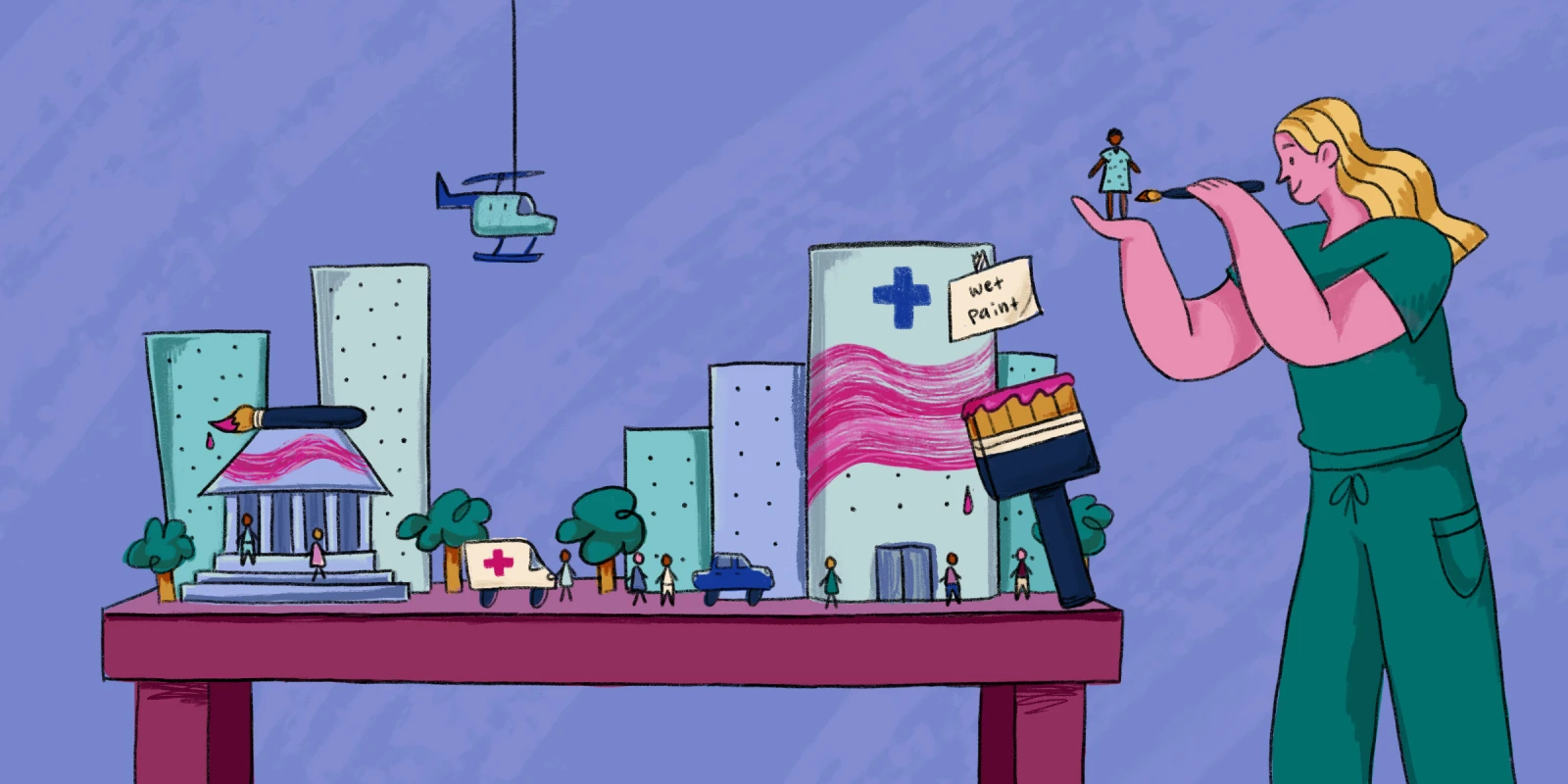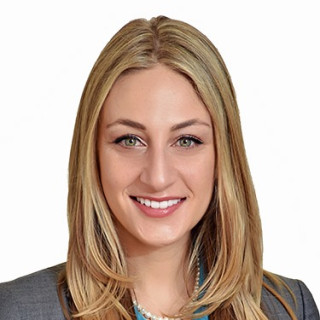Some say your 20s are about "finding yourself." This can be a tall order for physicians who are often heads down in their training years, surviving until the next exam and learning the newest EHR and day to day at their latest hospital rotation. Figuring out who they are and how they want to focus their careers is often secondary to the main aspiration of many physicians in training: simply become one.
As I near the end of my training and start catching glimpses of the career on the other side, I find myself returning to the questions I put on hold in my early 20s to pursue and excel in medical school. This includes, most notably, the scale of problems I want to work on.
Before I began my medical training, I worked first in technical product development and then in software sales. I was initially attracted to the companies I joined — one in health tech, the other in user analytics — for their lofty missions of using data to make the world a better place. Though I enjoyed working on the big problems each job attempted to tackle, I couldn’t help but feel that my day to day was abstracted from the heady issues that drew me in. Eventually, I realized that I wanted a more direct impact — to go to work and feel like I was helping people.
This desire led me to my first people management role, in which I led a small technical sales team. I thought this would help scratch the itch — one-on-one meetings with teammates I cared about, helping to navigate others’ career trajectories while simultaneously working on company projects and taking steps to accomplish strategic goals. But even in this role, I had trouble feeling the direct impact of my efforts. Knowing that I always had my undergraduate medical school prerequisites to fall back on, I decided to take the leap and enter an MD/MBA program.
I went to medical school because I wanted to become a physician, and I wanted to become a physician because I wanted to directly help people with my hard-earned knowledge and skills. Contrary to what I’d experienced in my corporate technology role, medical training was hands-on in the best way. I spent hours of my day in individual clinical encounters — reading up on diseases and medications to find the best individual treatment plan for patients; offering an ear when a cure was not within reach. Becoming a physician, I believe, changes you and your perspective; you must learn to care very deeply about the individuals you are helping and the problems you are solving day in and day out to be effective.
Over time, however, I found myself asking the opposite questions I had asked in my first career. I felt my impact often, when a patient shed a tear or uttered words of thanks. I also felt my helplessness more directly when delivering bad news or being on the receiving end of anger, hurt, or denial. But there were also less acute moments and even moments and conversations that became repetitive. Though I knew the import of each encounter, sometimes a focused visit felt, well, too focused. While it was gratifying to troubleshoot an individual patient’s transportation concerns or inappropriately priced prescriptions, I also started to wonder why those problems existed in the first place and who was out there working on them.
Looking back, I believe I had an inkling even then, at the beginning of my training, that I wanted to work on both broad and focused problems. I went for my MBA while in medical school with the idea that clinical practice would be an important part of what I did, but that I might want to pursue systemic questions as well. Today, I’ve begun to realize that, as with most things, a life and career require a balance — it can be dissatisfying to work on big questions without feeling their impact, and it can be dispiriting to solve individual problems without pausing to ask or attack the larger questions. As physicians, we’re fortunate that we can naturally work on both macro and micro problems, sometimes within the same week or even day. Certainly, each type comes with its own rewards and challenges.
My career arc is still being written, and while life at times unceremoniously reminds me that it’s challenging to "have it all," I believe physicians are in a unique position to strive for, and achieve, both of these professional satisfactions. Working with patients every day, we have perspective on the many challenges in health care, and we understand the direct impact that alleviating those challenges can have on the people we care for and work alongside. Whether it’s traditional scientific research, advocating at the state or federal level, or changing a process within your practice environment that alleviates a downstream pain point, there are many ways in which we can take a step back and focus on a larger problem. As a mentor recently told me, after you’ve repeatedly troubleshooted a problem at the source, take a moment to look upstream and ask yourself why this problem is happening in the first place.
For my fellow physicians also at a crossroads — whether you're nearing the end of training, sensing the limits of your current role, or simply feeling like there’s something else out there for you — I urge you to ask yourself: What kinds of problems do I want to solve next? Will doubling down on the individual impact fundamental to the practice of medicine reinvigorate me, or do I need to take a step back and focus on solving problems at scale? Taking the time to reflect on what your soul needs to feel rejuvenated will lead you to a path of greater self-knowledge — and professional fulfillment.
If you were to leave your current role, what sort of problems would you want to solve next? Share in the comments!
Rebecca Yanovsky Dufner, MD, MBA is a resident physician training in dermatology in Boston, MA. She graduated from Stanford University, Tufts University School of Medicine, and the Heller School for Social Policy and Management. In addition to her passion for dermatology, she has led cross-functional teams in health care and in tech, and is interested in health outcomes, access, and delivery on the patient and population level. Rebecca is a 2021–2022 Doximity Op-Med Fellow.
Illustration by Diana Connolly







